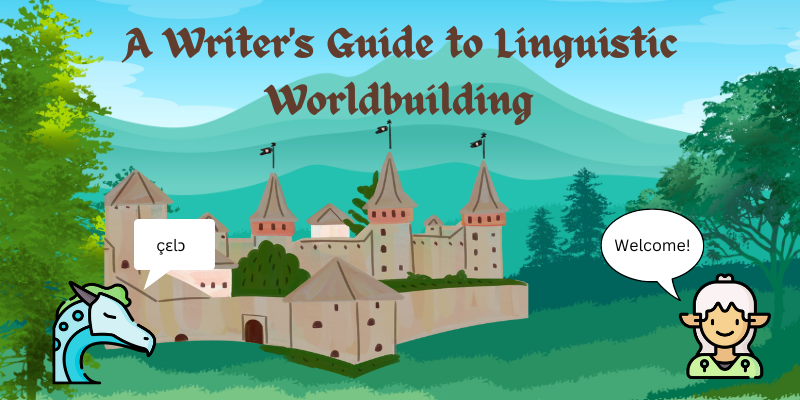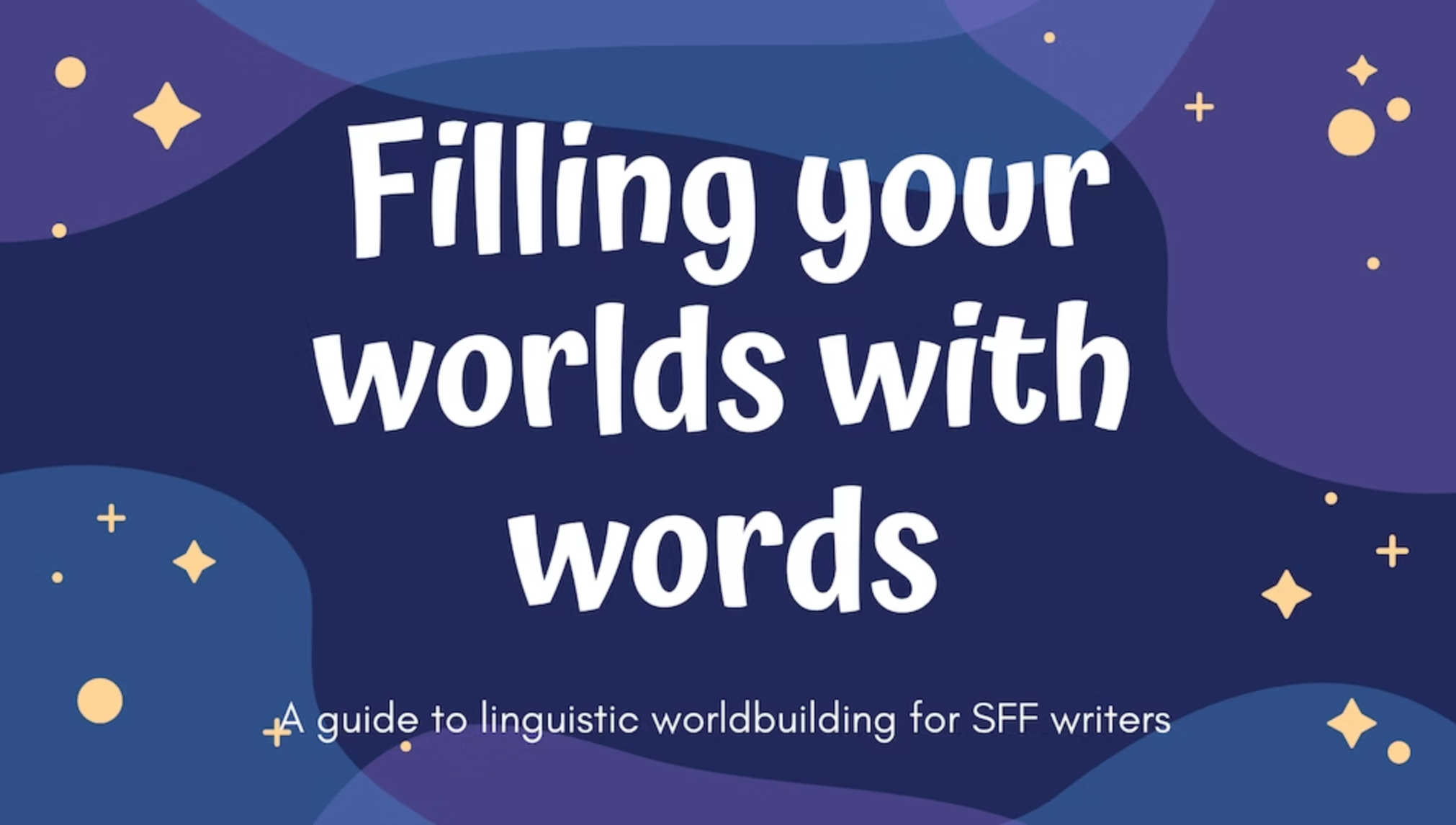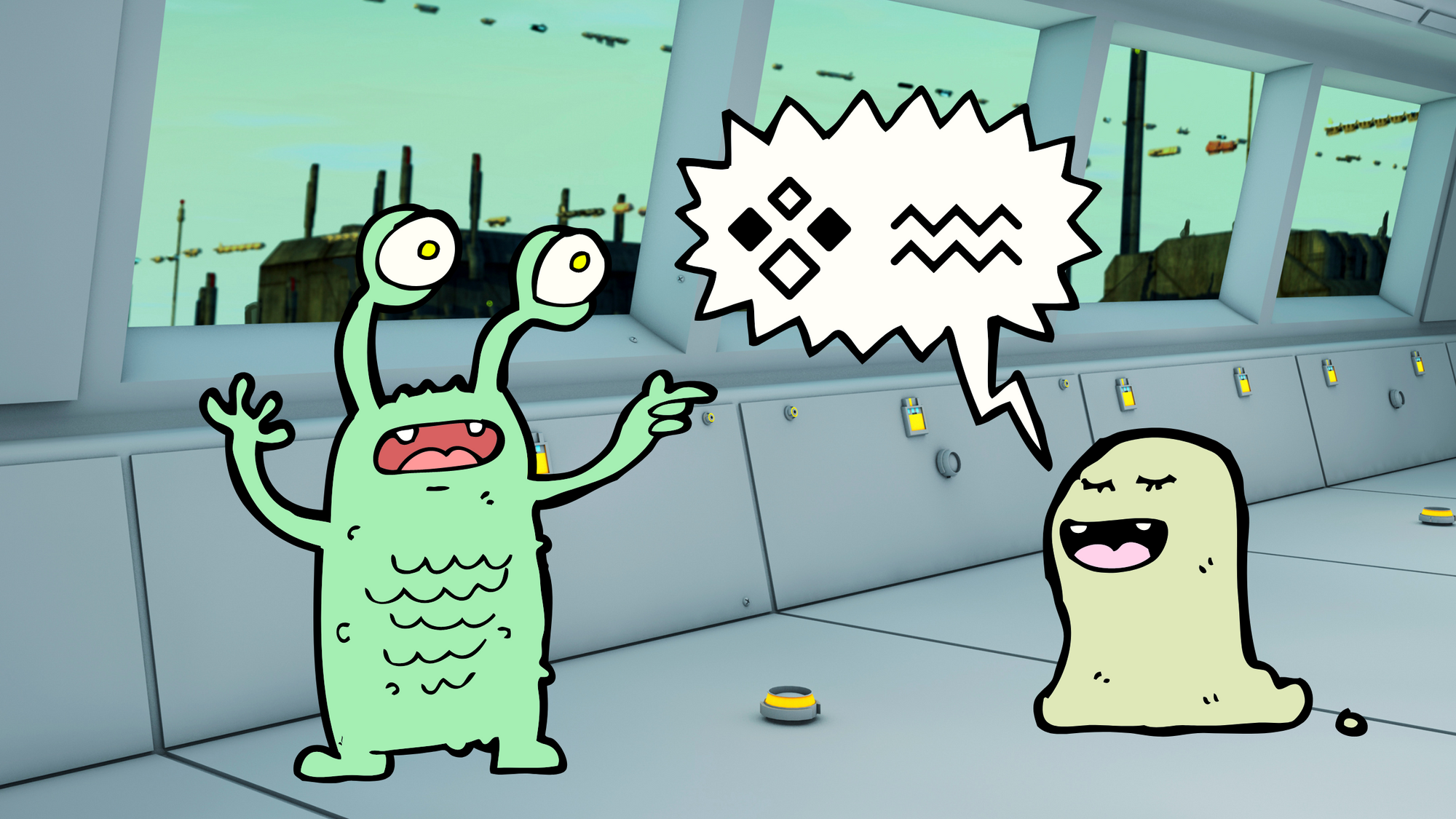Guest Post: CD Covington introduces A Writer's Guide to Linguistic Worldbuilding
If you've ever tried to create a rich secondary world, perhaps you will be as excited as I am about this project by SF writer and linguist, CD Covington.

Writing is a complex activity, and in the science fiction and fantasy genres, it can be extra complicated when you factor in worldbuilding. Whether you're creating a whole elvish language like J.R.R. Tolkien did for The Lord of the Rings, or deciding how people on a planet of the week might behave in an episode of Star Trek, there's a lot of factors to consider.
If you've ever tried to create a rich secondary world, perhaps you will be as excited as I am about this project by SF writer and linguist, CD Covington. I've already backed this Kickstarter myself, and I've invited her to explain why you might like to as well!
My name is CD Covington. I’m a science fiction writer and a linguist, and I’ve been writing a column on linguistics in SF/F on tor.com for a few years now. Julia has kindly given me this space on their site today to talk about my upcoming project, Filling Your Worlds with Words: A Writer’s Guide to Linguistic Worldbuilding.

What do I mean by “linguistic worldbuilding”? It’s a broad umbrella term that includes everything from the sounds that exist in the language your characters speak and that people, places, and things are named in, to slang, proverbs, and cussing, to the way people relate to their own languages.
I want to teach you how to think like a linguist when you plan out your world. Most people don’t spend time thinking about why we use particular sayings or analyzing what it means when a person makes a particular word choice. But that’s what linguists do; we overhear something on the bus or hear someone on the news say something a particular way and think it’s interesting, and then we make a note of it, ask our friends, maybe google it, and if it’s interesting enough, do a study and write a paper about it.
The first part of my book is about how sound works (phonetics). I cover how human speech works and extrapolate to non-humanoid vocal tract structures. You’ll learn how to decide what sounds exist and which consonant clusters (if any) are allowed in your language, and you’ll learn how syllables work so you can take your sounds and put them together into words that sound like they’re from the same language, or at least follow all of the rules of language X.
For example, we all know English is a magpie language, with vocabulary gleefully borrowed from other languages. Even words that have been in English long enough that they seem English are borrowed, like describe (mid-13th century from Old French and Latin). Most of our scientific and academic vocabulary is borrowed from Greek or Latin (psychology, 1650, from a Modern Latin coinage based on Greek psyche; all medical terminology; dinosaurs). But we get words like psychology that don’t conform to English pronunciation rules: PS is not allowed at the start of a syllable, so we make the p silent and pronounce it as sychology. So, when words are borrowed into a language, they will be modified to fit the recipient language. Even if all the sounds are allowed, like Angst or poltergeist, the vowel sounds in English are different from the vowel sounds in German, so we modify the vowels to fit.
If you have on your space station, say, two different languages with two different (but overlapping) sets of sounds, your characters could pronounce the same words differently.

The second part of my book is about how language is used in society. This is an extremely broad scope, so I’m narrowing it down by themes such as “encountering the alien,” which includes first contact scenarios and intercultural communication. The example I want to focus on today is language as a marker of identity.
The way you use language is as much a part of your identity creation process as the way you dress. When you prepare to speak, you choose, consciously or not, how you’re going to present yourself through your language, much in the way that you choose how you present yourself with your clothes, hair, and makeup. You dress differently for a job interview than for going out with friends, and you speak differently in these situations (typically). You probably talk differently with older relatives than you do with relatives your own age, and you might talk differently with your friends than with any of your relatives. If you go to conventions, you might put on a nerdy t-shirt to signify that you belong to the fannish community, just like you might hold up your hand in the \\// shape and say, “Live long and prosper.”
This is just the tip of the iceberg when it comes to the way language is used in society, and I can’t wait to tell you all about it in my book!
My Kickstarter campaign starts today, August 15, and will run for 30 days. I have all your usual tiers for books (epub, paperback, hardcover) and some really cool limited-edition rewards I can’t wait to share. The lowest support tier is just 3€ (I live in Germany), so I hope you’ll check it out.
Once again, thank you, Julia, for giving me this space to talk about my project!
About the Author
CD Covington is a writer and linguist. She is an alumna of Viable Paradise, a member of Codex, and an associate member of SFWA. She lives in Berlin, Germany, with her cat, where she is a skating official with Bear City Roller Derby. You can find her on these sites:
website https://www.cdcovington.com
mastodon https://wandering.shop/@exaggerated
twitter (rarely) @exaggerated
tumblr http://cd-covington.tumblr.com
instagram https://www.instagram.com/feuervogel42
YouTube https://www.youtube.com/channel/UCZ0iWE_V1WZxa9sbO1TOOhA
A Note for New Subscribers
If this is the first post you have received from me, it's likely that you were recently added because you opted into my newsletter in your Kickstarter backer survey for the Worlds of Possibility anthology Kickstarter. Welcome! This newsletter sends stories, poems, and odds and ends to do with creative lives and processes. There's also a subsidiary newsletter that sends episodes of the podcast, This Is Why We're Like This. You can manage your subscription to one or both at any time, by visiting my website, juliarios.com.